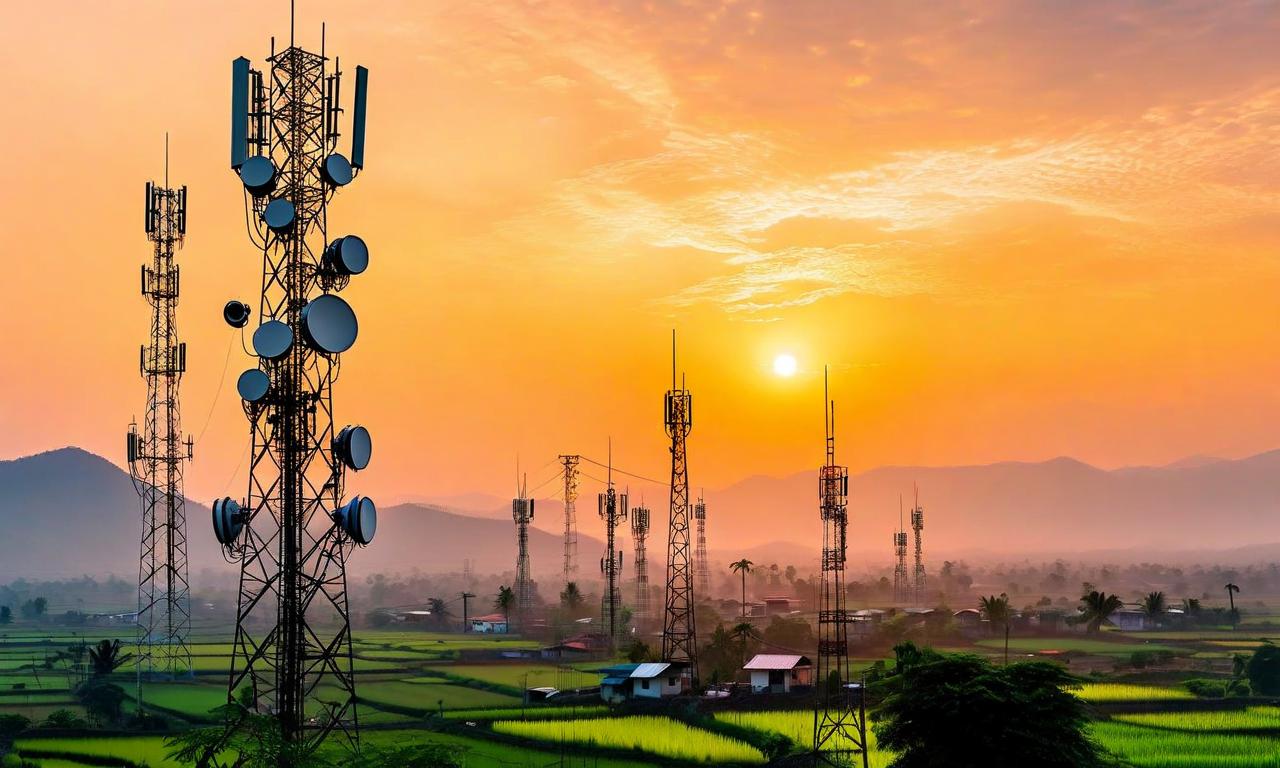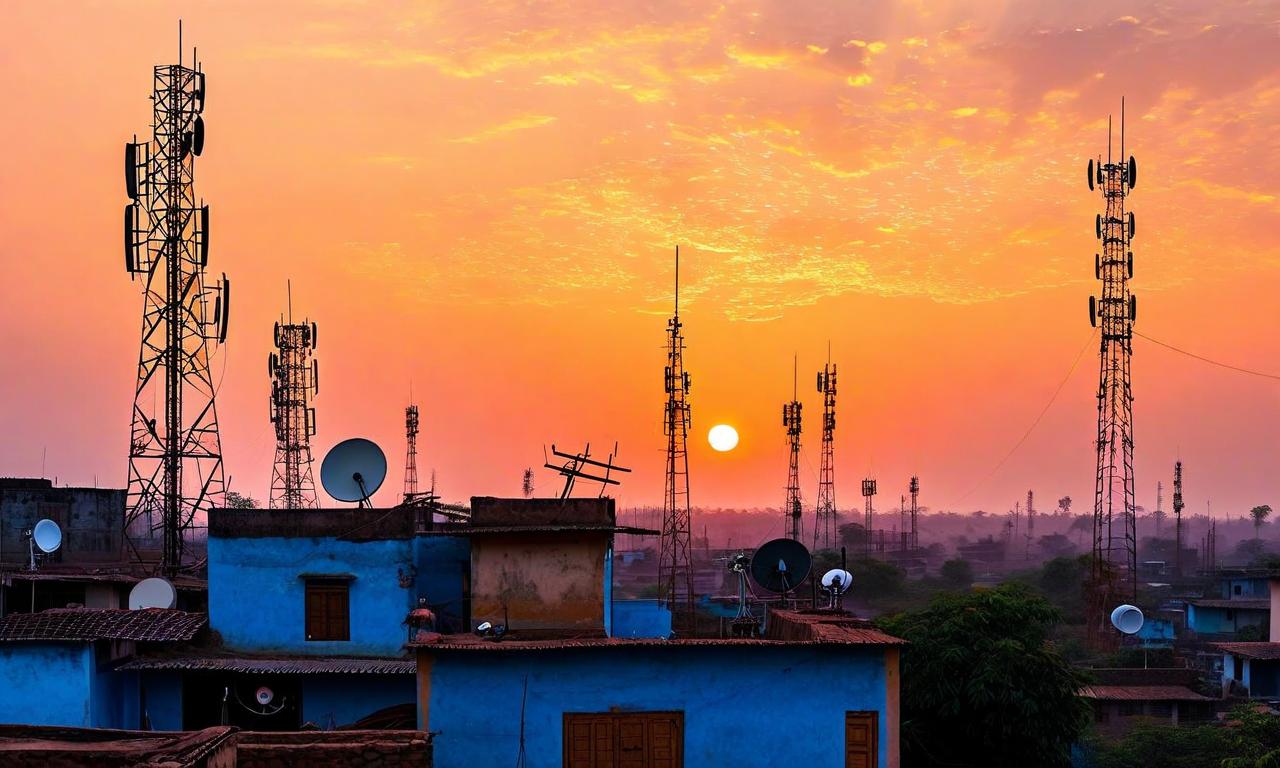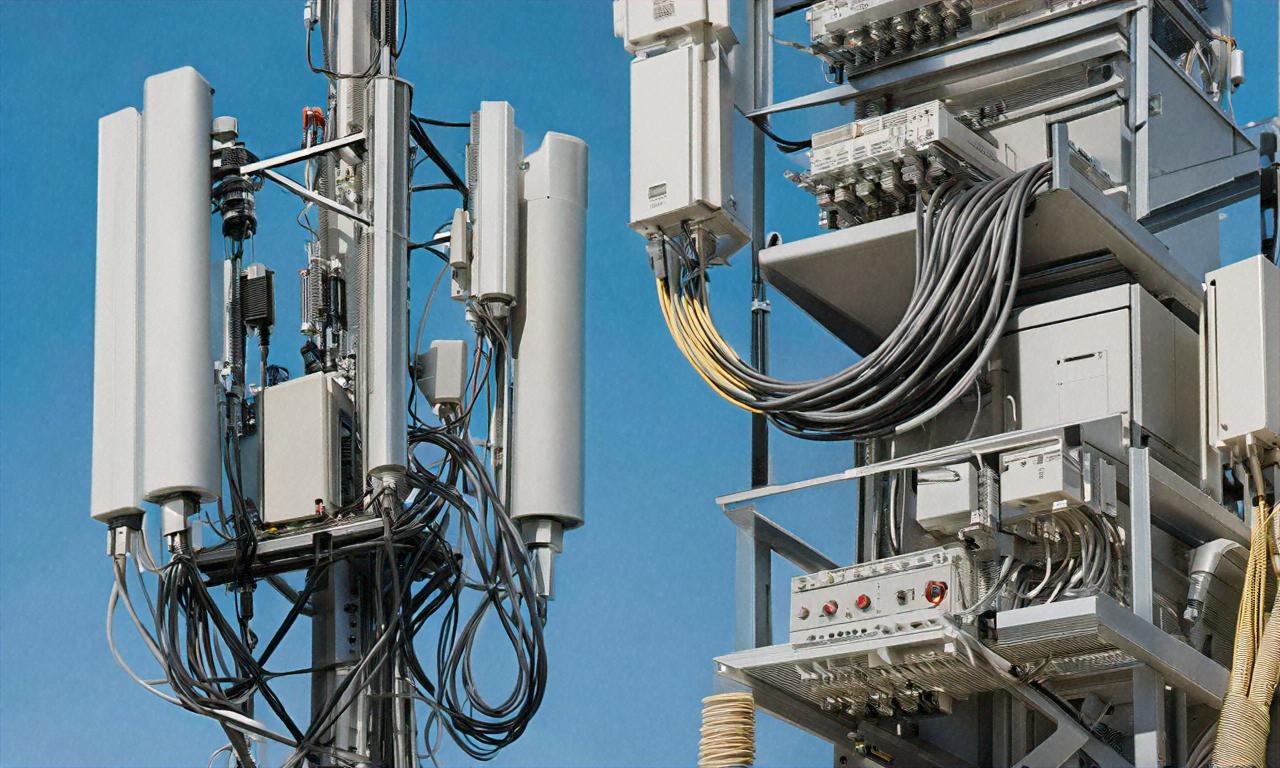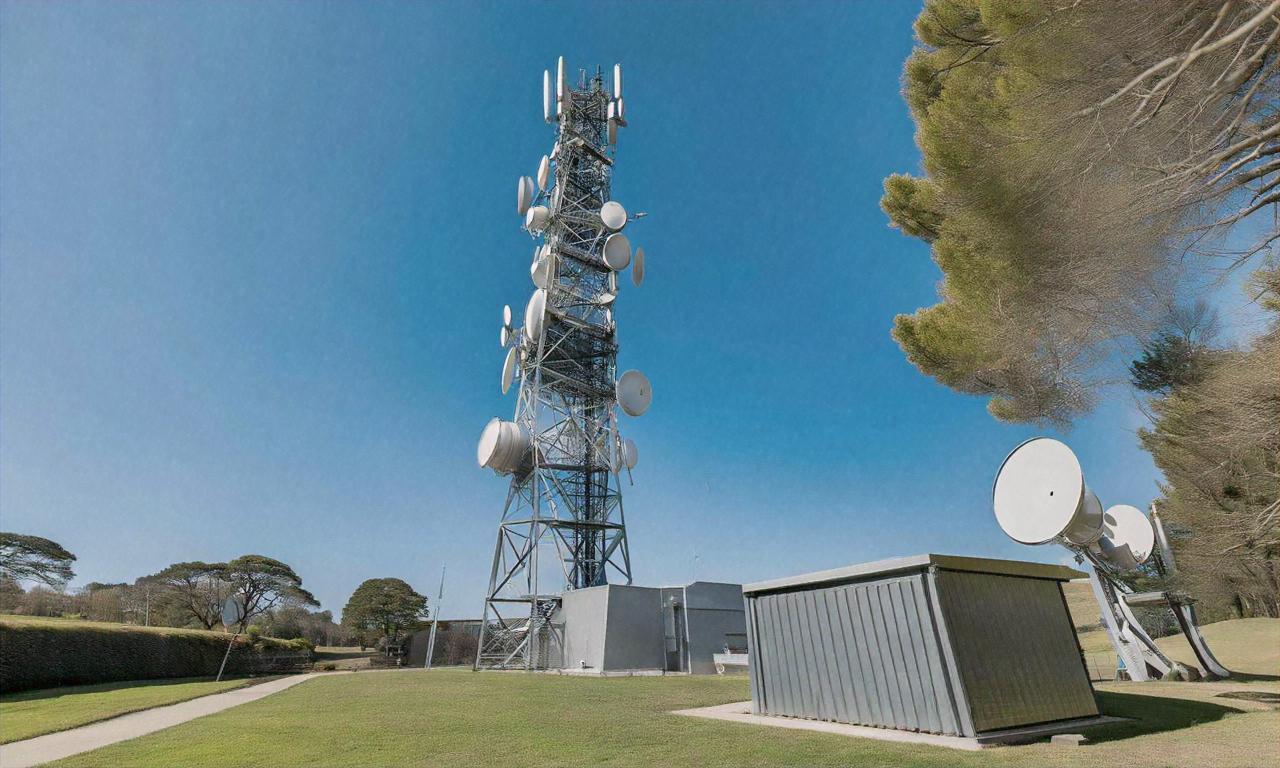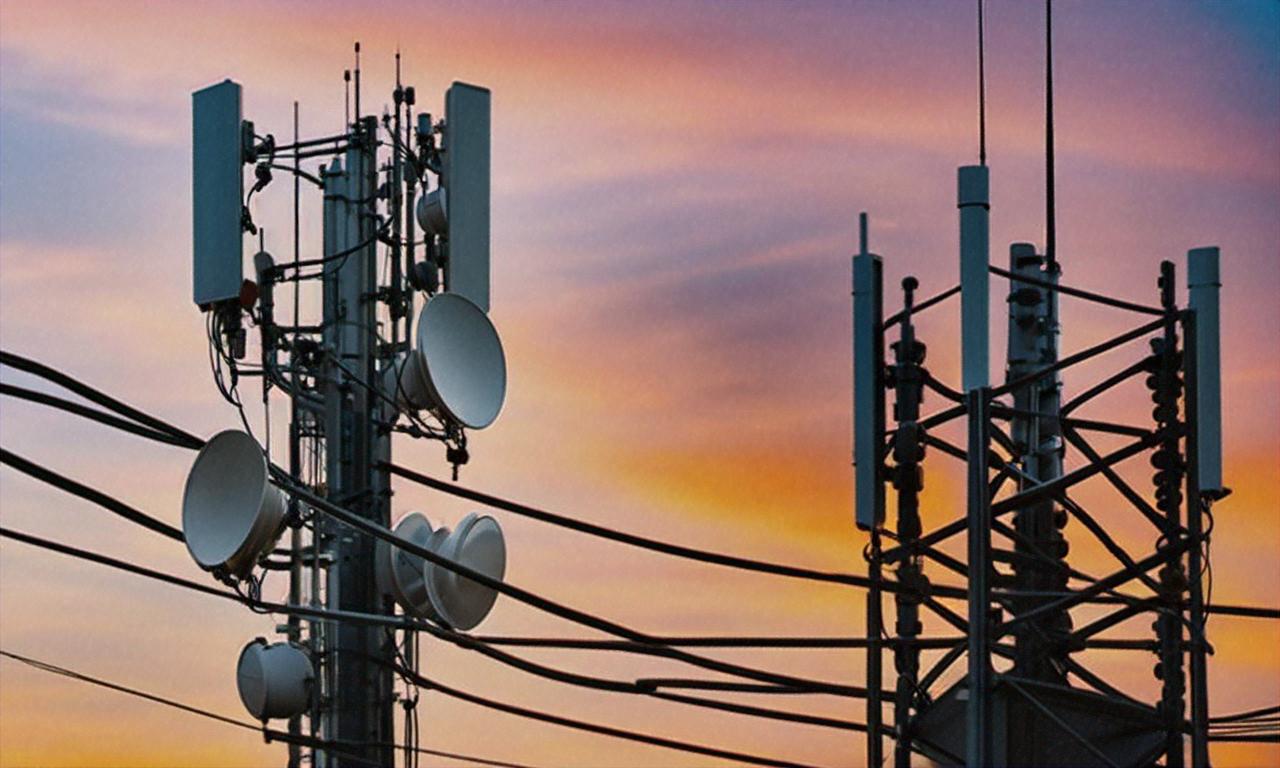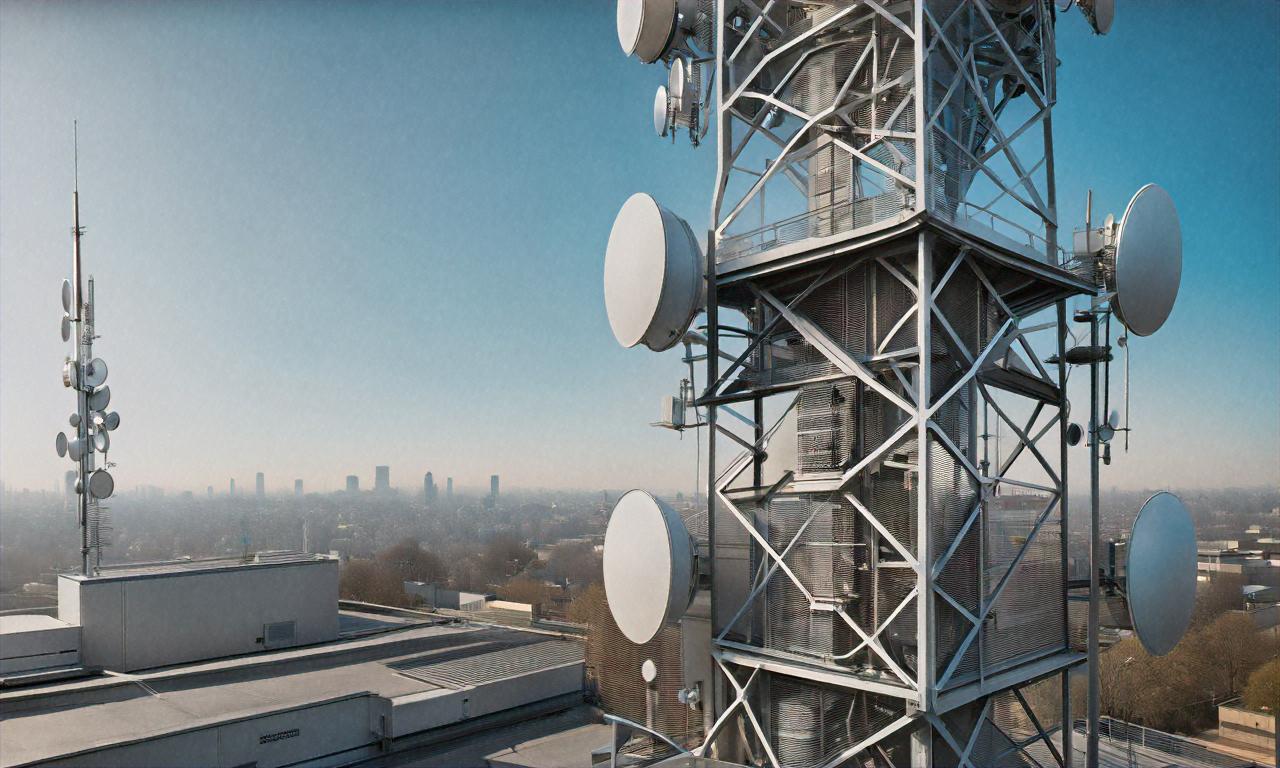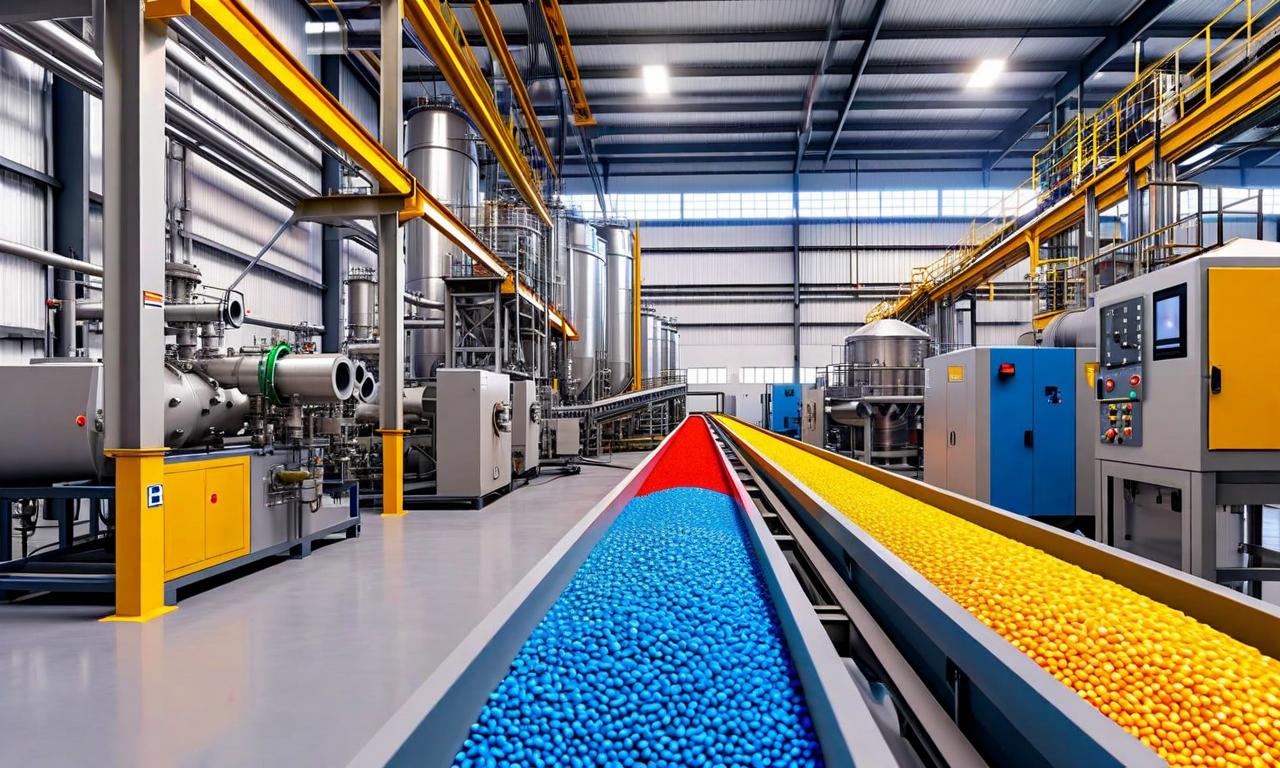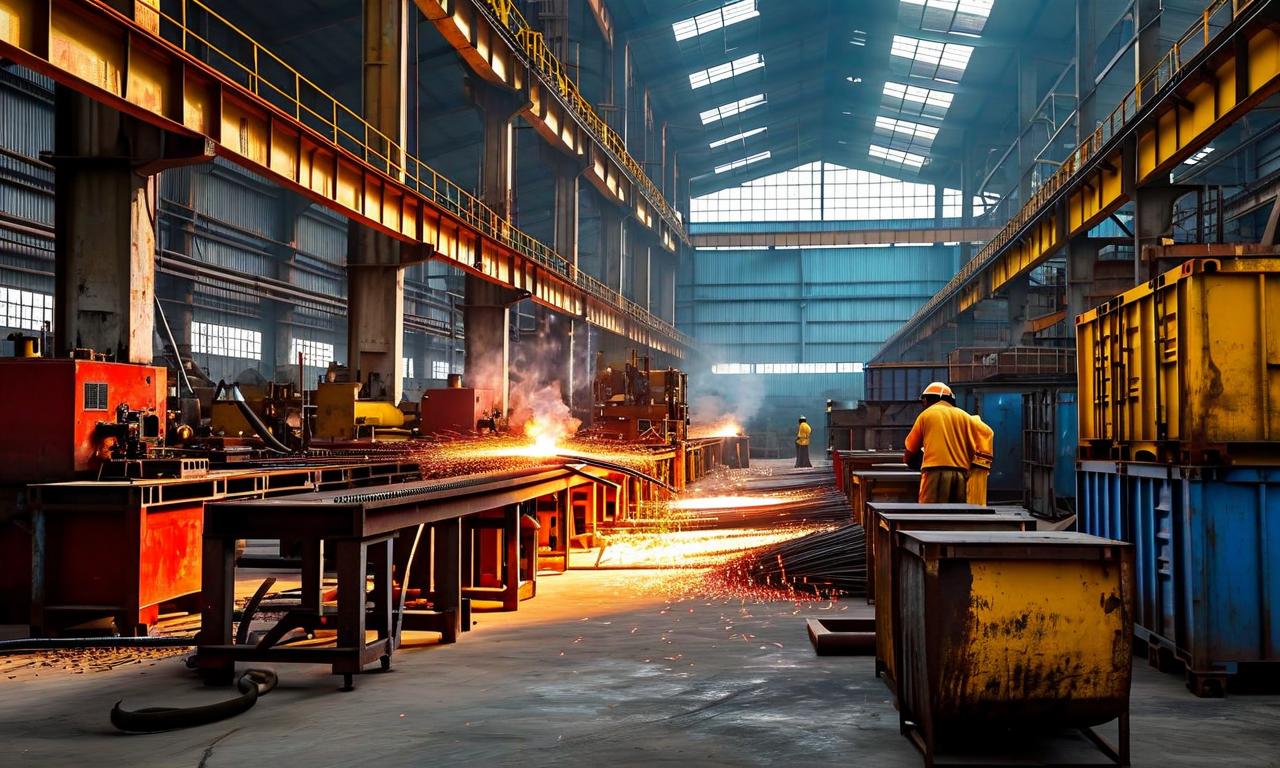Indus Towers Reports Mixed Q1 Results Amid Challenging Environment
Indus Towers, India's leading passive telecom infrastructure provider, reported a 9.1% year-on-year increase in Q1 consolidated revenue to Rs 8,058.00 crore. The company expanded its tower portfolio to 251,773 towers with 411,212 co-locations. However, profitability faced challenges with EBITDA declining 3.4% to Rs 4,390.00 crore and net profit decreasing 9.8% to Rs 1,737.00 crore. The company added 2,468 macro towers and 5,777 co-locations during the quarter, maintaining a strong market position despite margin pressures.
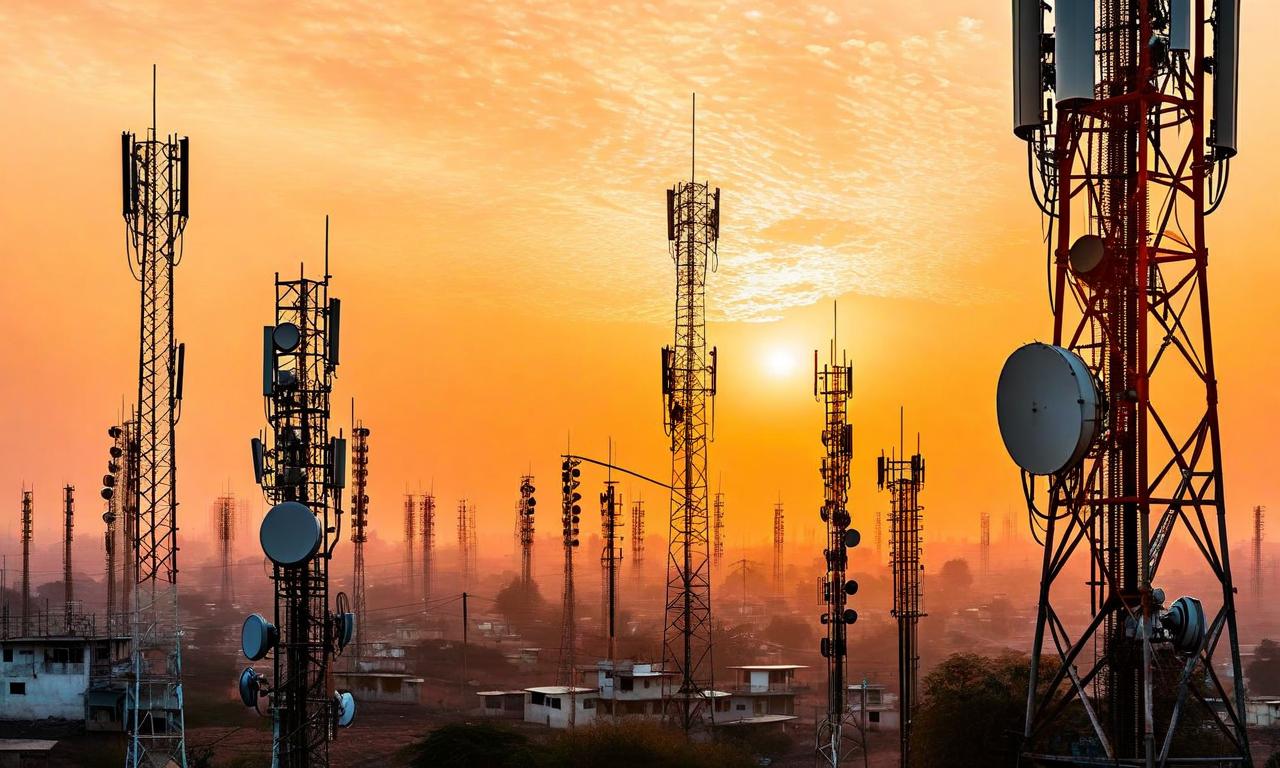
*this image is generated using AI for illustrative purposes only.
Indus Towers Limited , India's leading provider of passive telecom infrastructure, has reported its financial results for the first quarter, showcasing a mixed performance amid a challenging business environment.
Revenue Growth and Operational Metrics
The company reported a 9.1% year-on-year increase in consolidated revenue, reaching Rs 8,058.00 crore for Q1. This growth was primarily driven by an expansion in the company's tower portfolio and co-locations. As of the quarter-end, Indus Towers operated 251,773 towers with 411,212 co-locations, representing a significant increase from 225,910 towers and 374,928 co-locations in the same quarter last year.
The closing sharing factor remained stable at 1.63, indicating consistent demand for the company's infrastructure sharing services. However, the sharing revenue per tower per month decreased by 2.2% year-on-year to Rs 67,036.00, reflecting some pricing pressure in the market.
Profitability and Margins
Despite the revenue growth, Indus Towers faced challenges in maintaining its profitability. The consolidated EBITDA (Earnings Before Interest, Tax, Depreciation, and Amortization) declined by 3.4% year-on-year to Rs 4,390.00 crore. Consequently, the EBITDA margin contracted to 54.5% from 61.6% in the same quarter of the previous year.
The company's net profit after tax decreased by 9.8% year-on-year to Rs 1,737.00 crore. This decline can be attributed to higher depreciation and amortization expenses, which increased by 9.2% year-on-year to Rs 17,043.00 million, reflecting the company's continued investments in its infrastructure.
Financial Position and Returns
Indus Towers maintained a strong financial position, with the net debt (including lease liabilities) decreasing to Rs 167,360.00 million, compared to Rs 191,777.00 million a year ago. The company's return on equity (pre-tax) improved to 40.8% from 34.7% year-on-year, while the return on capital employed increased to 28.1% from 20.9%.
Operational Highlights and Strategic Initiatives
During the quarter, Indus Towers added 2,468 macro towers and 5,777 co-locations on a net basis. The company also reported 13,935 lean co-locations, which are primarily deployed for network densification.
Prachur Sah, Managing Director and CEO of Indus Towers, commented on the results: "We are pleased to have begun the year on an encouraging note, underpinned by healthy co-location additions, including substantial deployment on our existing towers. Our inherent strengths as a leading passive infrastructure player continue to help us achieve a meaningful share of our customers' rollouts."
The company is focusing on future-proofing its operations by investing in AI and digital solutions. As of the quarter-end, Indus Towers operated approximately 32,173 solar-powered sites across its network, demonstrating its commitment to sustainable practices and reducing operational costs.
Market Reaction and Outlook
The market reacted positively to Indus Towers' results, with the company's stock price closing at Rs 421.10 on the last day of the quarter, representing a significant increase from the previous year. The company's market capitalization stood at Rs 1,110.93 billion.
While Indus Towers faces challenges in maintaining profitability margins, its continued focus on expanding its tower portfolio, investing in new technologies, and improving operational efficiencies positions it well to capitalize on the growing demand for telecom infrastructure in India. The company's strong market position and strategic initiatives are expected to drive long-term growth as the telecom sector continues to evolve.
As the Indian telecom industry progresses towards wider 5G adoption and increased data consumption, Indus Towers remains well-positioned to benefit from these trends, leveraging its extensive nationwide presence and strong relationships with leading telecom operators.
Historical Stock Returns for Indus Towers
| 1 Day | 5 Days | 1 Month | 6 Months | 1 Year | 5 Years |
|---|---|---|---|---|---|
| -1.56% | +5.47% | +7.86% | +37.44% | +34.31% | +89.95% |



